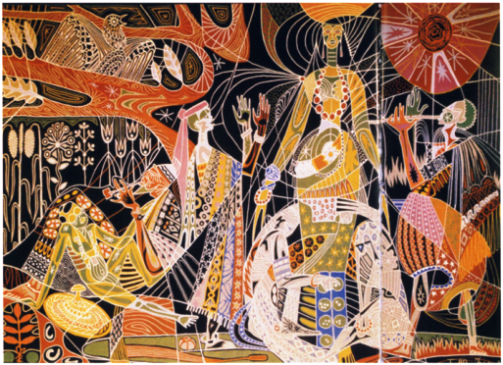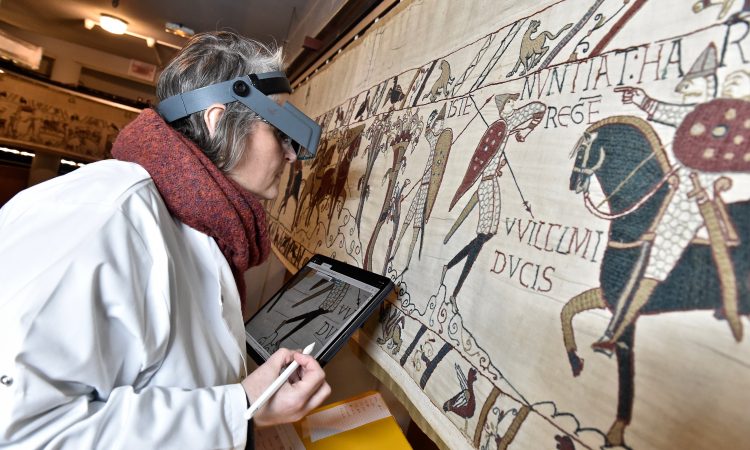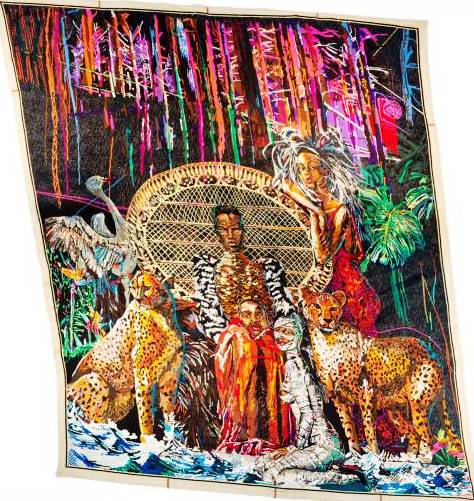The Complex Tapestry of France’s African Connections: A Historical and Contemporary Exploration
Related Articles: The Complex Tapestry of France’s African Connections: A Historical and Contemporary Exploration
Introduction
In this auspicious occasion, we are delighted to delve into the intriguing topic related to The Complex Tapestry of France’s African Connections: A Historical and Contemporary Exploration. Let’s weave interesting information and offer fresh perspectives to the readers.
Table of Content
The Complex Tapestry of France’s African Connections: A Historical and Contemporary Exploration

The relationship between France and Africa is a multifaceted and intricate one, deeply rooted in historical events and evolving into a complex contemporary dynamic. This relationship is often visualized through the lens of a "France-Africa map," which represents the geographical and historical connections between France and its former colonies in Africa. This map, however, is not merely a static representation of past events; it serves as a tool to understand the ongoing interplay of political, economic, cultural, and social influences that continue to shape the relationship between these regions.
Historical Roots: From Colonialism to Independence
The history of France’s involvement in Africa dates back to the 17th century, with the establishment of trading posts along the coast of West Africa. However, it was during the 19th century that French colonial expansion accelerated, leading to the establishment of vast colonial territories across the continent. By the early 20th century, France controlled a significant portion of Africa, including territories that are now independent nations like Senegal, Mali, Algeria, Ivory Coast, and many others.
The colonial era was marked by the imposition of French administration, language, and culture, often at the expense of local traditions and identities. The French colonial system was based on the extraction of resources and the exploitation of African labor for the benefit of the French economy. This system, while contributing to the development of some infrastructure in the colonies, also resulted in the suppression of local economies, political autonomy, and cultural expression.
The period following World War II witnessed a growing wave of anti-colonial sentiment across Africa. This led to a series of independence movements, culminating in the liberation of most French colonies by the 1960s. While independence brought about the end of direct colonial rule, it did not erase the legacies of colonialism. The economic and political structures established during the colonial period continued to influence the post-independence development of many African nations.
The France-Africa Map: A Visual Representation of Historical Ties
The "France-Africa map" is a visual representation of this historical relationship. It highlights the geographical proximity of France to its former colonies in Africa, emphasizing the enduring legacy of colonialism on the continent. The map also illustrates the linguistic, cultural, and economic ties that continue to exist between France and its former colonies, even after independence.
Beyond its historical significance, the France-Africa map also reflects the ongoing relationship between France and its former colonies in the present day. This relationship is characterized by a complex interplay of factors, including:
- Political Cooperation: France maintains strong political ties with many African nations, engaging in diplomatic efforts, security cooperation, and joint initiatives on various issues.
- Economic Interdependence: Despite independence, economic ties between France and its former colonies remain strong. France remains a major trading partner for many African nations, with investments in various sectors, including energy, infrastructure, and agriculture.
- Cultural Exchange: French language and culture continue to have a significant influence in many African nations, with French being an official language in several countries. This cultural exchange is evident in education, literature, music, and art.
- Historical Legacies: The historical legacies of colonialism continue to influence the relationship between France and Africa, often manifesting in debates surrounding economic inequality, political influence, and the role of French language and culture in African societies.
Understanding the Complexities of the France-Africa Map
The "France-Africa map" is not simply a geographical representation; it is a complex symbol of historical and contemporary relationships. It reflects the enduring legacies of colonialism, the ongoing political and economic ties, and the multifaceted cultural exchanges that continue to shape the relationship between France and its former colonies in Africa.
FAQs about France-Africa Map
1. What are the key historical events that shaped the relationship between France and Africa?
The key historical events include the French colonial expansion in the 19th century, the establishment of vast colonial territories across Africa, the imposition of French administration and culture, the post-World War II anti-colonial movements, and the independence of most French colonies by the 1960s.
2. What are the main factors that contribute to the ongoing relationship between France and Africa?
The main factors include political cooperation, economic interdependence, cultural exchange, and the historical legacies of colonialism.
3. What are the challenges and opportunities associated with the France-Africa relationship?
Challenges include addressing the legacies of colonialism, fostering economic development, promoting good governance, and addressing security concerns. Opportunities include leveraging shared history and culture, strengthening economic partnerships, promoting regional integration, and addressing common challenges such as climate change and terrorism.
4. How has the France-Africa relationship evolved in recent years?
In recent years, there has been a shift towards greater emphasis on partnerships and cooperation, with a focus on shared interests and common challenges. However, the relationship remains complex and subject to ongoing debate.
5. What are some of the key issues that continue to shape the France-Africa relationship?
Key issues include economic inequality, political influence, the role of French language and culture in African societies, and the legacies of colonialism.
Tips for Understanding the France-Africa Map
- Engage with historical sources: Explore historical accounts of French colonialism in Africa to gain a deeper understanding of the events that shaped the relationship.
- Study contemporary developments: Stay informed about current events and developments in the France-Africa relationship, including political, economic, and cultural trends.
- Consider different perspectives: Recognize that the France-Africa relationship is viewed differently by various stakeholders, including French citizens, African citizens, and international observers.
- Engage in critical analysis: Examine the historical and contemporary narratives surrounding the France-Africa relationship with a critical eye, considering the complexities and nuances of the relationship.
Conclusion
The "France-Africa map" is a powerful visual representation of a complex and multifaceted relationship. It highlights the historical legacies of colonialism, the ongoing political and economic ties, and the cultural exchanges that continue to shape the relationship between France and its former colonies in Africa. Understanding this relationship requires a nuanced and critical approach, recognizing the historical context, the contemporary dynamics, and the diverse perspectives that inform it. By engaging with the history and contemporary developments of the France-Africa relationship, we can gain a deeper appreciation for the complexities and challenges that continue to shape this important connection.








Closure
Thus, we hope this article has provided valuable insights into The Complex Tapestry of France’s African Connections: A Historical and Contemporary Exploration. We appreciate your attention to our article. See you in our next article!